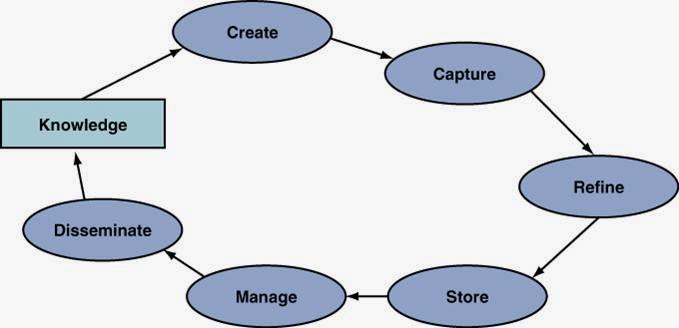Japanese quality movement was a miracle and created world-class products. All these methodologies and concepts developed these quality gurus for internal process and quality improvement crisis are still practiced in various companies. These have become universal approach to improve the quality and manage performance crisis. Quality gurus created work culture and dedicated teams, which developed Japanese production systems through group activities. Toyota Corporation developed a new philosophy to create major change in manufacturing systems and delivered world-class products with internal benchmark for quality of vehicles. In reality, Toyota changed external business environment for competitors and created a long-lasting impact on automobile industry. The Toyota Way is a set of principles and behaviors that underlie the Toyota Motor Corporation’s managerial approach and production system. It consists of principles in two key areas: continuous improvement, and respect for people. Toyota use operational excellence as a strategic weapon. Company places the highest value Continue reading
Modern Management Concepts
Background of Lean Manufacturing
Lean is a philosophy that spurred from the Toyota Production System (TPS). TPS was created by Toyota’s founder Sakichi Toyodo, Kiichiro Toyoda, and Taiichi Ohno. Much of TPS was also influenced by W. Edwards Deming’s statistic process control (SPC) and Henry Ford’s mass production lines. However, the Japanese were not impressed with Ford’s approach because it was filled with over-production, lots of inventory, and much waiting. Toyota identified these weaknesses in Ford’s production line and adapted the production line to create a more productive and reliable production line. TPS and lean also use just-in-time inventory where only small amounts of inventory were ordered and very little inventory was left waiting in the production line. This also was very different from Ford’s production line which usually bought high volumes of materials and had high inventory levels to lower costs. After TPS proved to be successful for Toyota, many companies adapted their Continue reading
Knowledge Management Cycle
In today’s business scenario where there is lot of competition, only source of lasting is Knowledge. It is argued that knowledge management is a necessity due to changes in the environment such as increasing globalization of competition, speed of information and knowledge aging, dynamics of both product and process innovations, and competition through buyer markets. Knowledge management promises to help companies to be faster, more efficient, or more innovative than the competition. Also, the term ‘‘management” implies that knowledge management deals with the interactions between the organization and the environment and the ability of the organization to react and act Various researchers then gave the various definitions on Knowledge Management and still it’s the buzzword today. Knowledge management is the process through which we can manage human centered assets efficiently and effectively. The function of knowledge management is to guard and grow knowledge owned by individuals, and where possible, transfer Continue reading
Business Intelligence (BI)
Business Intelligence is the process of discovering and analyzing data to make informed business decisions. The management in any business needs this aspect of management as part of the companies integral infrastructure in today’s world in order for the business to succeed. The data collected from many of the data collecting sources is used to determine trends, or measure, manage and improve on the performances of individuals, processes, teams and business units. The enterprise refers to any business organisation that uses computers as an integral part of their business and relies on it for that businesses development. The History Of Business Intelligence The term Business Intelligence was coined by the Gartner group in mid-1990s. But Business Intelligence was around before that, it originated in the Management Information Systems reporting systems of the 1970s. Reports in this era was only two fold, there was no analytical dimension to reporting. In the Continue reading
Innovation – Definition and Types
Innovation is an important concept to understand as a manager and for an organisation as a whole. Used in the correct manner, innovation can give an organisation the competitive advantage they need to be a success in their market. Firstly, it is useful to look at innovation in general. Innovations are ideas that are developed into new products or processes. They result in changes that customers recognize as new. Put in even simpler terms, innovation is the process of making improvements by introducing something new. Therefore, the two words that sum innovation up are ‘process’ and ‘new’. Defining Innovation Innovation is doing things in new ways in order to achieve significant results and make a huge difference in performance compared to others. Innovation’s goal is to have a positive change, to make someone or something better. Testing and evaluation of ideas is critical in achieving this goal. The ideas that Continue reading
Differences Between Emotional Quotient (EQ) and Intelligence Quotient (IQ)
Intelligence Quotient (IQ) Intelligence Quotient is a number or a count of the intelligence of a person. In a standard IQ test, a person’s quotient of intelligence is compared and determined on the basis of the scores of other on the same test. These days more and more people are relying on IQ tests for a lot of reasons. IQ tests have become a parameter for educational institutes and corporate offices in conjunction with personality tests. Intelligence Quotients are used by people to find out a person’s mental age, which is the persons understanding levels and performance capabilities at a particular age. A Standard IQ test would consist of tasks that involve the use of mental ability and vary on their difficulty levels. The test includes gauging of memory, reasoning power, numerical capability, definitions and scope of recalling data. Psychologists have determined a given age at which people can correctly Continue reading



